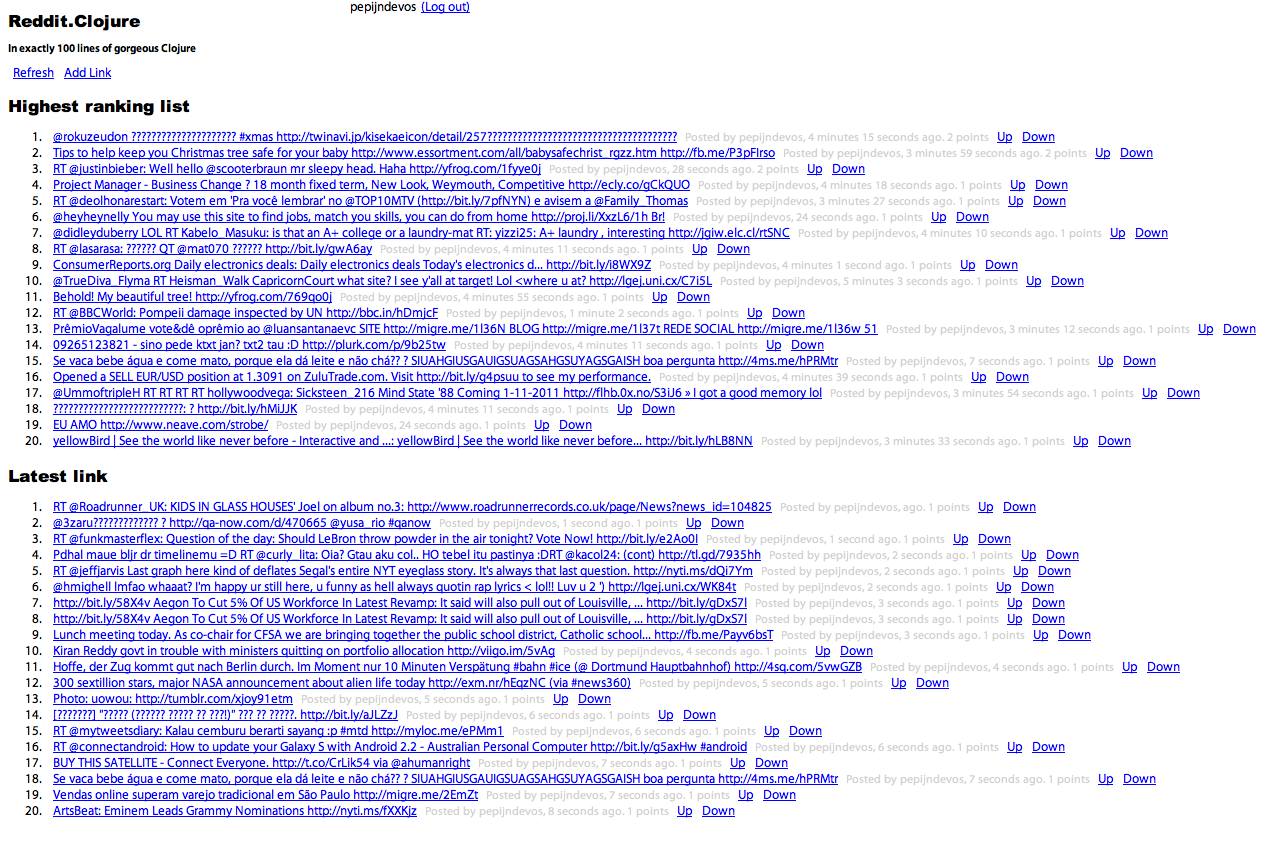A friend told me about someone who sells a Twitter product for marketeers for around €300. What this tool does is that it keeps track of hash tags you specify and mails tweets to you, so you can answer questions and get new followers.
I was surprised to say the least. I frequently write these kind of things, but I find them to trivial to sell, I told my friend. To prove my point, I wrote this Python script - which I will give away for free - that tracks keywords, makes a noise and opens tweets in a browser as it finds them.
import json
import webbrowser
import urllib2
import urllib
#http://dev.twitter.com/pages/streaming_api_methods#track
kwds = "#durftevragen photoshop"
# Twitter username
uname = ""
#Twitter password
pwd = ""
password_mgr = urllib2.HTTPPasswordMgrWithDefaultRealm()
top_level_url = "http://stream.twitter.com"
password_mgr.add_password(None, top_level_url, uname, pwd)
handler = urllib2.HTTPBasicAuthHandler(password_mgr)
opener = urllib2.build_opener(handler)
data = opener.open('http://stream.twitter.com/1/statuses/filter.json?track=' + urllib.quote_plus(kwds))
for line in data:
j = json.loads(line)
url = 'http://twitter.com/' + j['user']['screen_name'] + "/status/" + j['id_str']
print url
print('\a')
webbrowser.open(url)
- Extend my Twitter email suit with this tracking.
- Multiple keywords
- Organized in nice IMAP folders.
- Reply per email(No need to visit Twitter).
- Assemble a FAQ/knowledge base on your Wordpress blog.
- Tweet random facts from there.


